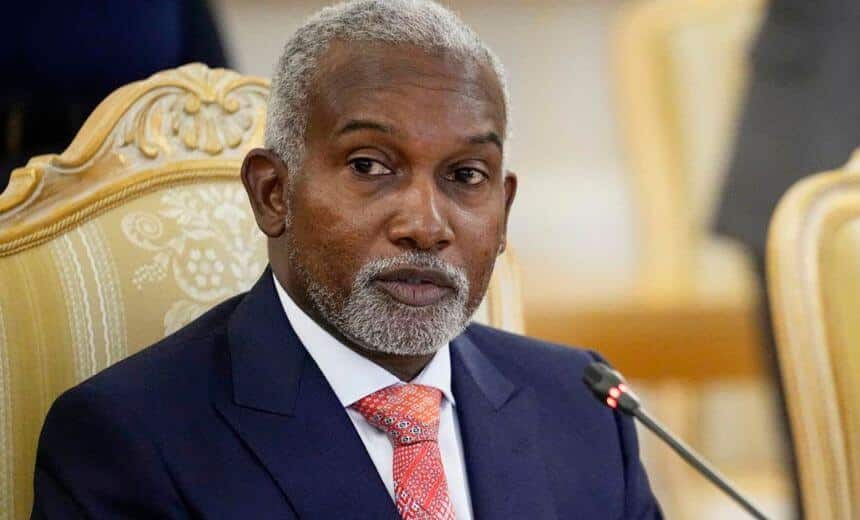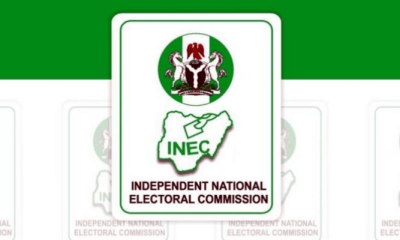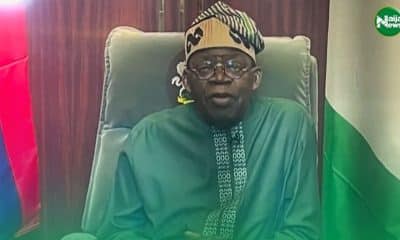Nigeria News
‘We Are Struggling’ – 109 Embassies In Financial Distress As Workers Owed Over Six-month Salaries

At least 450 foreign service officers across 109 Nigerian missions abroad have gone without salaries for the past five to six months, leaving them in financial distress and struggling to meet basic obligations such as rent and school fees.
The acting spokesperson of the Ministry of Foreign Affairs, Kimiebi Ebienfa, acknowledged the issue and assured that the ministry was working on a resolution.
He expressed optimism that once President Bola Tinubu signs the recently passed 2025 Appropriation Act into law, it would positively impact the finances of the ministry and the missions abroad.
Despite increased budgetary allocations in recent years, Nigerian missions continue to face severe funding shortages. The ministry spent ₦251.71 billion on salaries over four years, with personnel costs increasing annually:
- 2021: ₦73.14 billion (₦34.38 billion for salaries)
- 2022: ₦88.09 billion (₦55.27 billion for salaries)
- 2023: ₦98.11 billion (₦62.30 billion for salaries)
- 2024: ₦160.06 billion (₦99.76 billion for salaries)
- 2025 Proposal: ₦353.77 billion (₦214.64 billion for personnel costs)
Additionally, ₦53 billion has been earmarked for the renovation of 103 foreign missions in 2025. The funds are meant for chanceries, staff quarters, ambassadors’ residences, office furniture, and official vehicles. Some of the allocations include:
- Abidjan: ₦554 million
- Banjul: ₦812 million
- Brazzaville: ₦555 million
- Port of Spain: ₦558 million
- Caracas: ₦576 million
- Kingston: ₦624 million
- Libreville: ₦567 million
- Buenos Aires: ₦409 million
- Niamey: ₦899 million
However, officials say funding remains inadequate, with many embassies struggling to operate. The situation has worsened due to delays in appointing new ambassadors, a process stalled since President Tinubu recalled 83 ambassadors in September 2023.
Foreign affairs minister Yusuf Tuggar admitted that funding shortages had stalled embassy operations and ambassadorial postings.
“There is no point sending out ambassadors if you do not have the funds for them to even travel to their designated country and to run the missions effectively,” he stated.
Multiple sources within the ministry confirmed to The PUNCH that many foreign service officers have not received salaries since August or September 2024.
Embassy staff report increasing financial hardship, with some struggling to cover basic operational expenses, including rent and service provider payments.
One official, speaking anonymously, described embassies accumulating debts and facing legal action from service providers over unpaid bills.
“The debts are piling up, and some service providers have dragged some missions to court,” he said.
Another source noted that the financial crisis has impacted the quality of consular services provided to Nigerians abroad, with embassies struggling to process passports and assist citizens in distress.
A foreign service officer who completed his duty tour last year revealed that some diplomats had been forced to use personal funds to purchase office supplies like ink, toners, and paper.
Historical Underfunding and Policy Challenges
Former diplomat Rasheed Akinkuolie traced the funding crisis to the military’s takeover of government in 1983, which led to a long-standing culture of underfunding diplomatic missions.
He noted that the foreign affairs ministry’s 2025 budget, when spread across 109 missions, remains insufficient.
“The budget of the Ministry of Foreign Affairs in 2025 is ₦353 billion or $233 million. If spread across 109 missions, this amounts to very little,” he explained, adding that the Nigeria High Commission in London, which was allocated ₦7 billion (approximately £3.6 million), struggles with high operational costs, including minimum wage salaries of £1,500 per month for drivers.
Akinkuolie further criticized the exchange rate volatility affecting budget allocations, arguing that the practice of budgeting in both U.S. dollars and naira should be reinstated.
“Missions should receive their allocations in dollars directly from the Central Bank, while domestic operations should be funded in naira,” he suggested.
A retired ambassador, speaking anonymously, described the situation as “persisting for quite some time”, with the lack of ambassadorial appointments exacerbating the issue. He expressed relief at being retired and no longer affected by the crisis.












